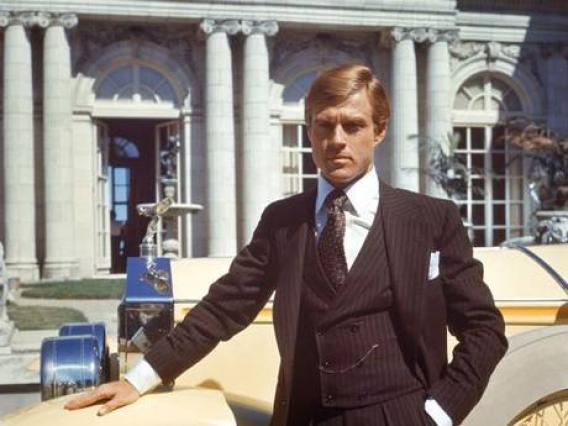If you go to the Wikipedia page for the 1974 film adaptation of The Great Gatsby, you may notice something curious. On the upper right-hand side of the page, where the credits are listed, there, below Francis Ford Coppola’s name, is Vladimir Nabokov’s. The famous Russian-American author, the Wikipedia page says, did “rewrites” on the script.
Of course he did no such thing. Nabokov didn’t even like Fitzgerald’s novel. (“Tender Is the Night, magnificent; The Great Gatsby, terrible,” he told Fitzgerald biographer Arthur Mizener.) Just to be sure, though, I asked Andrea Pitzer, author of The Secret History of Vladimir Nabokov. She assured me that the author of Lolita had nothing to do with the famously disappointing Robert Redford vehicle, which co-starred Mia Farrow and Sam Waterston.
Normally, I wouldn’t go to such lengths to check a mistake on Wikipedia. But that one about Nabokov has been on the site, uncorrected, for, in Internet terms, ages—two years, two months, and 28 days, to be precise. And it has begun to creep into references to the film elsewhere. Just this morning, for instance, one of my favorite websites, Open Culture, repeated the error.
It’s not the only Wiki-fib about that Gatsby screenplay to infect other corners of the web. A few years ago, a visitor to the page would have learned, correctly, that “Truman Capote was the original screenwriter, but he was replaced by Francis Ford Coppola.” (“The script that I wrote did not get made,” Coppola has said. But he did, in fact, write a script. And so did Capote, though his was rejected by the studio.) In December 2010, however, someone added a clause to that sentence: “with some scenes re-written by Philip Roth.” That bit of fiction hasn’t had quite the afterlife of the Nabokov foolishness, but it did, for instance, sneak into a Yahoo! Movies post by the generally very intelligent critic Will Leitch.
Leitch’s piece is a good example of how this sort of misinformation can affect discussion of the film in question. Expressing his displeasure with the news that Baz Lurhmann would be adapting Fitzgerald’s novel, Leitch wrote: “The following three people worked on the script for the 1974 version of The Great Gatsby: Francis Ford Coppola, Philip Roth, and Vladimir Nabokov. You’re telling us that Baz freaking Lurhmann’s the one who figured it out?”
Again, just to be sure, I wrote to someone who would know, emailing authorized Philip Roth biographer Blake Bailey to ask if the novelist was involved with the 1974 film. “Actually it was Roth who advised Baz Luhrmann to shoot it in 3-D,” Bailey told me. “Kidding. The answer is no.”
Bailey is not the only person to see this misinformation as the joke it so obviously is. In January 2011, someone on Wikipedia saw the Roth reference, and changed it to include Nabokov, in a bit of Wiki-vandalism one-up-manship. Doing the joke one better, in April of last year someone else revised the sentence to read: “with some scenes re-written first by Vladimir Nabokov, Philip Roth, and Thomas Pynchon.” Even that obvious howler lasted for several months, but was perhaps one step too far: In September 2012, someone deleted the sentence entirely.
By then, though, Nabokov’s name had migrated to the sidebar at the top of the page—and into the news. In the Independent last year, Nick Clark reported that “Francis Ford Coppola and Vladimir Nabokov wrote the screenplay after Truman Capote was replaced for the 1974 version.” And perhaps because Clark and others have repeated the claim, Nabokov’s name hasn’t come down. Last November, someone removed it from the sidebar—but it was put back up two days later. Wikipedia prompts some people to repeat a false claim, then those repetitions become sources for the original falsehood.
With his fondness for intertextual games, Nabokov might have even found all this funny. But I bet Philip Roth’s not going to be too happy to hear about it.
